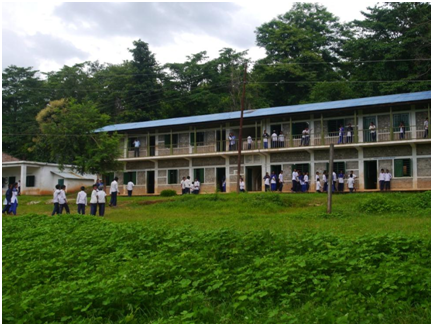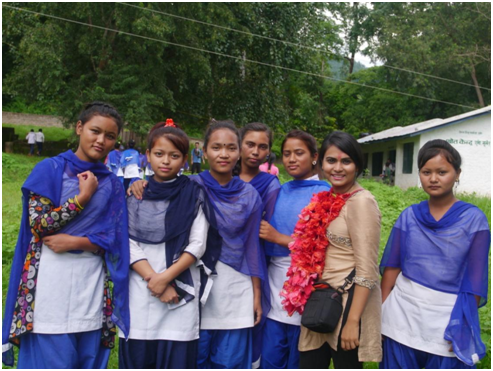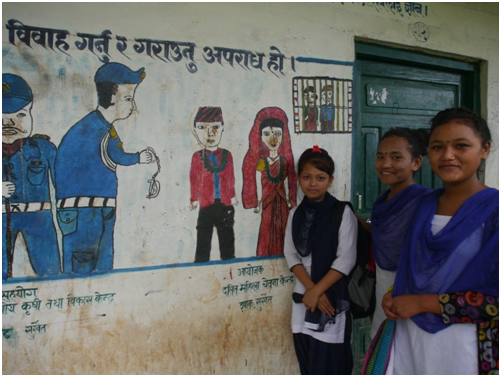As soon the team got out of the car in Gumi to visit yet another school where girls have benefitted from the Girls Empowerment Program, we were greeted with beautiful flower garlands and tons of love! Compared to the girls in Maintada, the girls here were super shy, except for one girl named Chandra. This little bold girl wants to get a higher education and become a social worker, but she is afraid that her parents will want her to get married. She is confident in her future and exclaimed “I will convince my parents that helping me get into college will benefit them. They worked hard their whole life and if I can become a social worker, I can earn money and take care of them and my siblings.” In Nepal’s society, pervasive gender discrimination contributes to the low social and economic status of women and girls. Often, girls are considered financial burdens on their families and upon reaching puberty, their mobility is often restricted, further diminishing their learning, and social opportunities.
The school teacher here expressed that child marriage is correlated to families’ fear of elopement. “My best friend ran away and got married last month. I am so close to her and she did not even tell me that she was running away. Perhaps, she knew that I would convince her that she is making a haste decision and that she will regret it,” said Amrita. One of the reasons why girls run away in Nepal is because they are not generally permitted to express themselves freely, and when they do, they are often not taken seriously by their parents. When girls start to develop the ability to form independent opinions, parents usually maintain control and authority over their daughters and make key life decisions on their behalf.
Programs like GEP and life skills education enabled these groups of girls to realize their potential as agents of change. Through monitoring various programs, I learned the importance of empowering girls and giving them skills and knowledge for future livelihoods. Girls who receive life skills training and are beneficiary from the GEP program were ones less likely to get married. Of course, delay in child marriage was just one of the benefits. These girls were also more likely to stay in school, have a better understanding of gender equality and possess improved confidence and well-being.
Posted By Dorothy Khan (Nepal)
Posted Aug 10th, 2016




